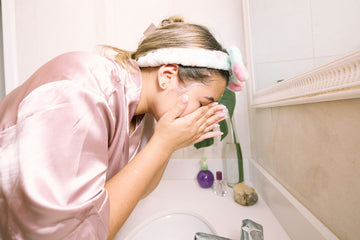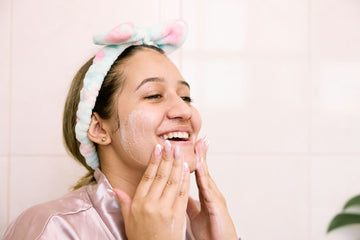A good facial moisturizer is a cornerstone of any effective skincare routine, helping to keep the skin hydrated, smooth, and protected from environmental damage.
With so many options available, it can be challenging to choose the best moisturizer for your skin type and concerns.
In this guide, we’ll explore the key ingredients that promote hydration, top-rated moisturizers for different skin types, and expert application tips to ensure you get the most out of your skincare routine.
Understanding Your Skin Type
Before selecting a moisturizer, it’s essential to understand your skin type as part of your overall skin care routine.
The right moisturizer can provide the perfect balance of hydration without causing greasiness or irritation.
Common Skin Types:
-
Normal: Skin that isn’t overly oily or dry, with few blemishes and a balanced texture.
-
Oily: Skin that produces excess sebum, leading to a shiny appearance and frequent breakouts.
-
Dry: Skin that feels tight, rough, and may experience flaking or peeling.
-
Combination: Skin that is oily in the T-zone (forehead, nose, and chin) but dry in other areas like the cheeks.
-
Sensitive: Skin that is prone to redness, irritation, or allergic reactions when exposed to certain products or ingredients.
Skin Concerns:
-
Acne: Look for oil-free, non-comedogenic moisturizers that won’t clog pores.
-
Dark Spots: Opt for moisturizers containing ingredients like vitamin C or niacinamide to help brighten and even out skin tone.
-
Fine Lines: Choose a moisturizer with anti-aging ingredients like retinol or peptides to smooth and firm the skin.
-
Uneven Skin Tone: Consider products that contain antioxidants and brightening agents to promote a more even complexion.

Key Ingredients for Hydrated Skin
Facial moisturizers rely on key ingredients to lock in moisture and improve the skin’s overall appearance. Understanding these ingredients can help you choose the best formula for your skin.
1. Hyaluronic Acid
A naturally occurring substance in the skin, hyaluronic acid is a powerful humectant that retains moisture, making it a popular ingredient in hydrating moisturizers. It’s especially effective for plumping and hydrating dry or dehydrated skin.
2. Ceramides
Ceramides are lipids that help restore and maintain the skin’s natural barrier. They are essential for keeping moisture locked in and protecting the skin from environmental damage. Moisturizers containing ceramides are ideal for dry and sensitive skin types.
3. Niacinamide
Niacinamide is a form of vitamin B3 that improves skin elasticity, enhances the skin barrier, and reduces inflammation. It’s great for people with acne-prone, sensitive, or aging skin, as it calms redness, minimizes pores, and boosts hydration.
4. Glycerin
A well-known humectant, glycerin attracts water to the skin’s surface, helping it stay hydrated. It’s commonly found in moisturizers for all skin types due to its gentle yet effective hydration properties.
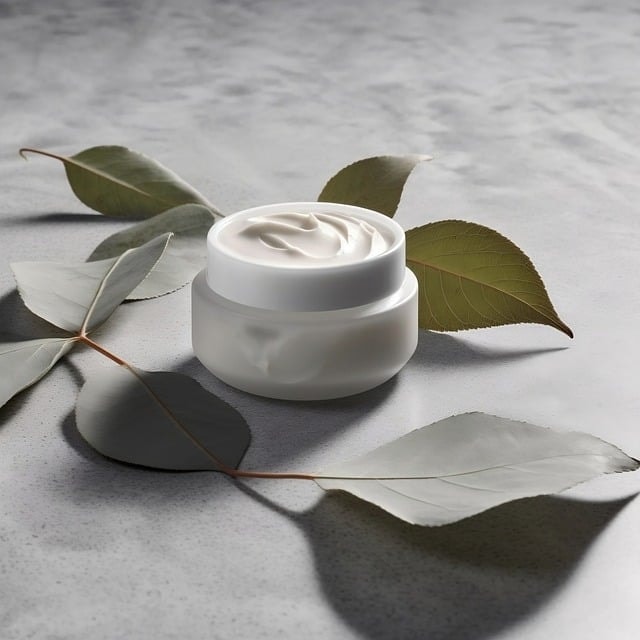
Choosing the Right Moisturizer for Your Skin Type
Different skin types have unique needs, which means finding the right skincare products for you. So it’s crucial to choose facial moisturizers that address those specific requirements.
1. Oily Skin
For oily skin, look for lightweight, oil-free, and non-comedogenic moisturizers. These won’t clog pores or add excess shine but will still provide the hydration your skin needs.
-
Best Ingredients: Hyaluronic acid, niacinamide, glycerin.
-
Recommended Products: Neutrogena Hydro Boost Water Gel, La Roche-Posay Effaclar Mat Moisturizer.
2. Dry Skin
Dry skin requires a rich, hydrating moisturizer to replenish lost moisture and restore the skin barrier. Choose formulas that contain ceramides, hyaluronic acid, and shea butter for deep hydration.
-
Best Ingredients: Ceramides, hyaluronic acid, glycerin, shea butter.
-
Recommended Products: Cetaphil Moisturizing Cream, CeraVe Moisturizing Cream.
3. Combination Skin
Combination skin can be tricky, as it needs a balance of hydration without being too greasy. Opt for moisturizers that provide lightweight hydration for oily areas while nourishing dry patches.
-
Best Ingredients: Niacinamide, hyaluronic acid, lightweight oils.
-
Recommended Products: Clinique Dramatically Different Moisturizing Gel, Tatcha The Water Cream.
4. Sensitive Skin
If you have sensitive skin, look for fragrance-free and hypoallergenic moisturizers with soothing ingredients like aloe vera and ceramides. These will calm irritation and keep your skin hydrated without causing a reaction.
-
Best Ingredients: Ceramides, glycerin, aloe vera, niacinamide.
-
Recommended Products: La Roche-Posay Toleriane Double Repair Face Moisturizer, Aveeno Ultra-Calming Daily Moisturizer.
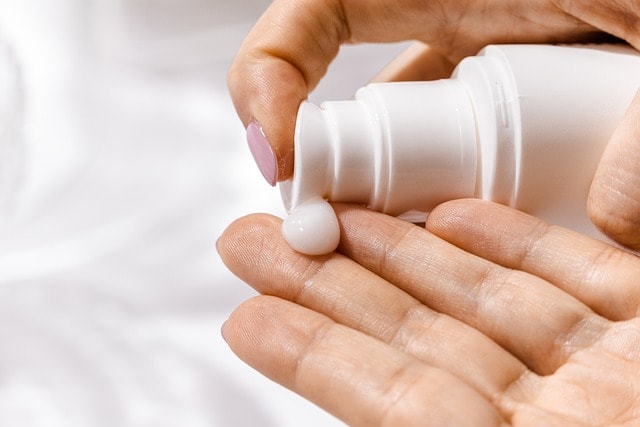
Application Tips for Maximum Absorption
Applying your moisturizer correctly can enhance its effectiveness, ensuring your skin stays hydrated and protected throughout the day.
1. Apply After Cleansing and Toning
Moisturizer should be applied immediately after cleansing and toning, while your skin is still slightly damp. This helps lock in moisture and ensures better absorption.
2. Use Gentle, Upward Strokes
When applying moisturizer, use gentle, upward stroking motions to encourage circulation and avoid tugging at the skin. This is especially important around sensitive areas like the eyes.
3. Focus on Dry Areas
Pay extra attention to areas that are prone to dryness, such as the cheeks and around the mouth. For those with combination skin, you may need to use a richer product on these areas while applying a lighter one to the T-zone.
4. Use a Moisturizer with SPF for Daytime
For daytime use, it’s essential to apply a moisturizer that contains SPF to protect your skin from UV damage. Look for broad-spectrum protection with at least SPF 30.
Top-Rated Face Moisturizers
Here are some of the top-rated face moisturizers that cater to various skin types and concerns.
1. Cetaphil Moisturizing Cream
A rich, nourishing cream ideal for dry skin, this moisturizer is packed with hydrating ingredients like glycerin and petrolatum to provide long-lasting moisture. It’s also fragrance-free, making it suitable for sensitive skin.
2. Neutrogena Hydro Boost Water Gel
A lightweight gel moisturizer designed for oily skin, this product contains hyaluronic acid to deliver intense hydration without leaving a greasy residue. Its refreshing texture makes it perfect for those with oily or combination skin.
3. La Roche-Posay Toleriane Face Moisturizer
This soothing moisturizer is formulated for sensitive skin, containing ceramides and niacinamide to repair the skin barrier and calm irritation. It’s gentle enough for daily use and leaves the skin feeling soft and balanced.
4. Olay Regenerist Micro-Sculpting Cream
A luxurious cream for anti-aging, Olay Regenerist contains peptides and hyaluronic acid to plump fine lines and firm the skin. Its rich texture is ideal for those with dry or mature skin looking for deep hydration and anti-aging benefits.
5. CeraVe Facial Moisturizing Lotion
This fragrance-free, non-comedogenic lotion is perfect for all skin types. Containing ceramides and niacinamide, it helps restore the skin barrier while providing lightweight hydration.
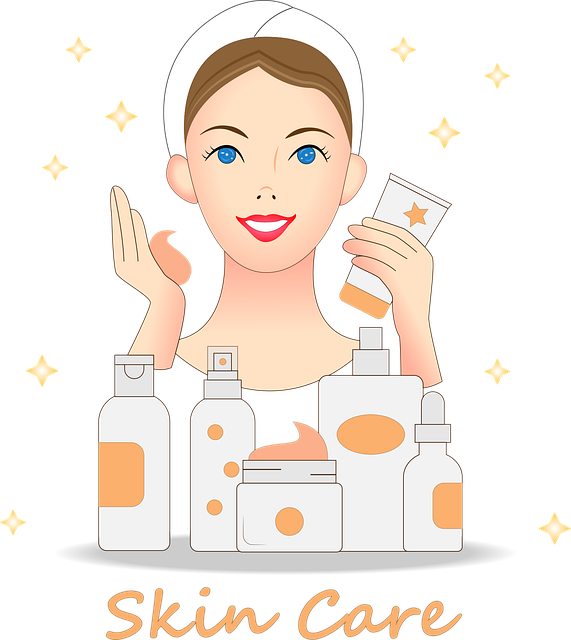
Common Mistakes to Avoid
Even with the best products, it’s easy to make mistakes that can reduce the effectiveness of your moisturizer. Here are a few common pitfalls to avoid:
1. Using Too Much Moisturizer
Over-application can leave your skin feeling greasy and may clog pores, especially if you have oily or acne-prone skin. A pea-sized amount is usually enough for the entire face.
2. Not Applying Moisturizer After Cleansing
Moisturizer is most effective when applied immediately after cleansing, as damp skin absorbs hydration more readily. Waiting too long can cause the skin to dry out and reduce the moisturizer’s impact.
3. Using the Wrong Moisturizer for Your Skin Type
Choosing a moisturizer that isn’t suited to your skin type can exacerbate skin concerns. For example, using a heavy, oil-based moisturizer on oily skin can lead to clogged pores, while a lightweight gel might not provide enough hydration for dry skin.
Moisturizer vs. Serum: What’s the Difference?
While moisturizers and serums both play important roles in your skincare routine, they serve different purposes.
-
Moisturizers provide hydration and protect the skin’s surface from environmental damage.
-
Serums are lightweight and contain concentrated active ingredients like vitamin C, retinol, or peptides to target specific concerns such as wrinkles, dark spots, or dullness.
For best results, apply a serum first, followed by your moisturizer to seal in hydration and enhance the serum’s benefits.

Expert Advice for Healthy Skin
1. Consult a Dermatologist
If you’re unsure about your skin type or have specific concerns, it’s always best to consult a board-certified dermatologist. They can provide personalized advice and recommend the best products for your skin.
2. Stick to a Consistent Routine
Consistency is key to seeing results. Follow a simple yet effective routine that includes cleansing, toning, moisturizing, and protecting your skin with SPF daily.
3. Stay Hydrated
Drinking plenty of water and maintaining a balanced diet can help support healthy, hydrated skin from the inside out.
Best Moisturizer for the Face Conclusion
Choosing the right facial moisturizers is essential for achieving healthy, glowing skin. By understanding your skin type and concerns, selecting products with hydrating ingredients, and following proper application techniques, you can ensure your skin stays moisturized and protected.
Incorporate these tips into your skincare routine for maximum absorption and long-lasting benefits, and avoid common mistakes for optimal results.




